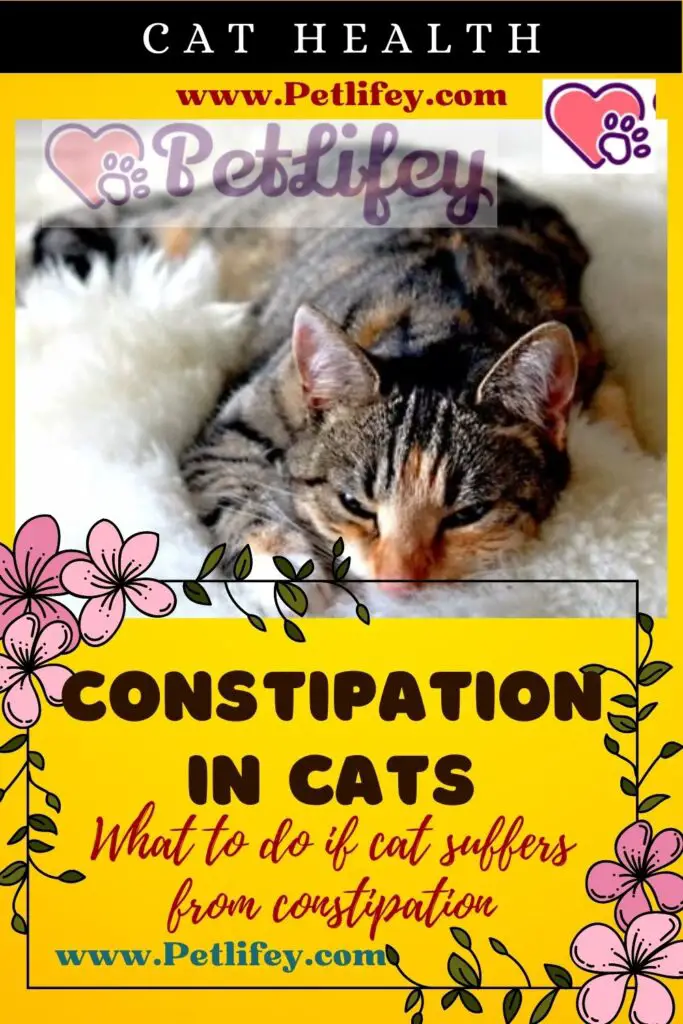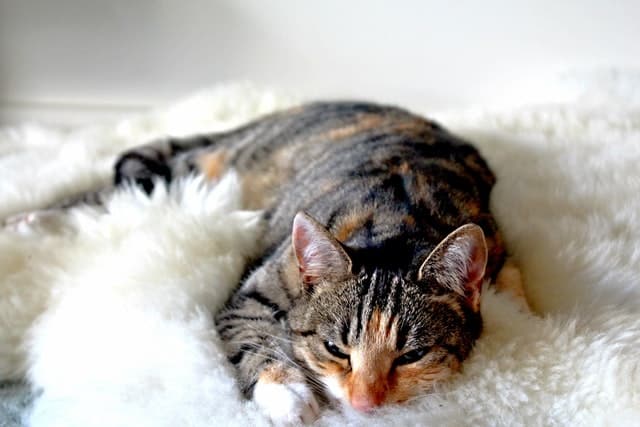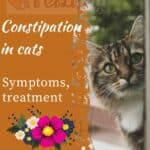
Constipation is a common problem in cats, but why does constipation occur in cats and what can you do to help when your cat is constipated?
If you have a cat it could have happened to you too: you are sitting comfortably at the table, or perhaps on the sofa in front of the TV, when you hear your cat digging and scratching the litter box repeatedly and forcefully. It might seem like one of the many signs of the incredible and almost maniacal attention of domestic cats to hygiene and cleanliness, but often this repeated behavior hides a problem of constipation or constipation in the cat.
Particularly common in obese and elderly cats, constipation is usually heralded by this typical behavior: the cat nervously scratches and digs the litter box, then strains to defecate, and repeats the pattern over and over again. But what to do in front of a cat suffering from constipation? Here’s what to do about constipation in cats.
Constipation in cats: how to help a cat when it is constipated
First you need to be careful to distinguish a constipated cat from a cat suffering from a urinary tract infection: these two conditions have very similar symptoms and can easily be confused with each other. However, especially if it is a male cat, identifying a urinary blockage caused by infection is essential because it is a life-threatening veterinary emergency.
Here are the standard symptoms of cat urinary tract infection: First, the cat will have traces of blood in the urine. In addition, the amount of urine will be extremely small and in severe cases, complete urinary blockage will occur. Finally, the cat will tend to obsessively lick the genital area (which is also common in cats with constipation).
Symptoms and signs of constipation in cats
Once you have ruled out the presence of a urinary tract infection, you can move on to investigating whether the cat problem is constipation. First of all, keep in mind that the constipated cat could also strain in places other than the litter box: this is because, instinctively, the effort to defecate causes him pain and associates the pain with the litter box. So, he makes an attempt to “go to the bathroom” elsewhere, as happens with cats that go to the bathroom or on the carpet.
But what are the unmistakable signs of a cat suffering from constipation or constipation?
– Kitty is irritable,
– Vocalizes the annoyance with continuous meowing and moaning,
– He may seem sad and depressed,
– Sometimes, he alternates days of constipation with days in which episodes of diarrhea occur,
– In the most serious cases, we reconstitute lethargy, vomiting and loss of appetite in cats.
How to help a cat suffering from constipation
1) Make sure your cat drinks enough water
The amount of water a cat needs daily is essential for any cat and in particular for those suffering from constipation: defecating once in 2 days causes severe dehydration in the cat, which needs to be remedied by introducing the right amount of water into the his body every day.
2) Offer the cat wet food
Wet food, that of cans to be clear, helps the normal functioning of the intestine much more than the classic croquettes which are dry food for cats. Still with regard to nutrition, constipation in cats can be improved by adding more fiber to the cat’s daily diet: sometimes, a teaspoon of boiled pumpkin pulp in the bowl may be enough to unlock the situation.
3) Use laxatives suitable for felines
It is often possible to help the cat suffering from constipation and constipation with a spoonful of a specific drug: before giving any medicine to your cat it is good to ask your veterinarian for a specific opinion.
Preventing constipation in cats

Once the problem of constipation in cats has been resolved, it is important to ensure that it does not recur again: constipation, in fact, in the long run can cause a dangerous condition for cats called magacolon. In these cases, the large intestine becomes enlarged and surgery is needed to solve the problem.
Here are the measures to prevent the cat from suffering from constipation:
– always make fresh and clean water available to your cat,
– pay attention to the cat’s healthy and balanced diet,
– reduce environmental stress for the cat,
– always keep the litter box clean, because dirt could discourage the cat from using it.






